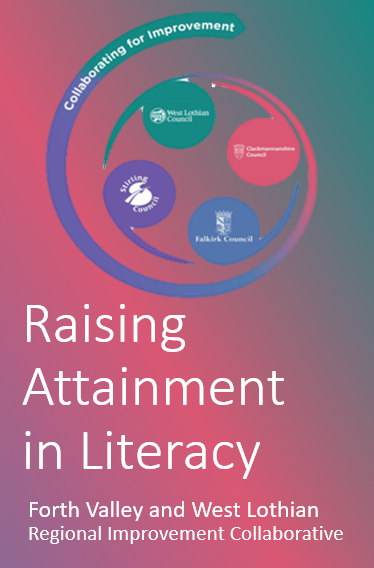Tag: improve outcomes
Disciplinary Literacy
Dr Jessie Ricketts spoke to TES as part of their ‘Podagogy’ series on literacy. She explores early literacy, but also the shift in focus for literacy in secondary school, including the role of vocabulary – find the podcast HERE
Science teacher, Amanda Fleck, part of the ‘Improving Literacy in Secondary Schools’ EEF panel, has written a blog post on ‘Why Words Matter in Science’ – see HERE.
Hayley Mallinson, geography teacher at Blackpool Research School, has written a blog on the importance of vocabulary in Geography, entitled ‘Poles Apart’ – see HERE.
#ScotReadingSchools
The FVWL RIC are very pleased to have been given the opportunity to pilot a Reading Schools initiative with The Scottish Booktrust. Check out #ScotReadingSchools on twitter for more information and to see some of the creative practice going on to develop a reading culture across our region.
Building a Reading Culture
Our Reading Culture network met yesterday for the fourth of our professional network events. We took the opportunity to consider the role of storytelling as part of pedagogy, to share progress in our classrooms so far and to consider our next steps.



Building a Reading Culture
Our Reading Culture working group met recently to plan the third of our reading professional network events in February. So far, we have had the opportunity to engage in professional dialogue around developing a reading culture with colleagues from across the Regional Improvement Collaborative and also benefitted from the expertise of Dr Sarah McGeown, Senior Lecturer Developmental Psychology, University of Edinburgh. Dr McGeown joined us for a workshop looking at promoting positive reading motivation and engagement. We considered the research in this area; the relationship between reading motivation, reading frequency and reading skill; some key factors which influence differing reading motivation and attitudes; and implications for practice.
Some of the research shared can be accessed here.

Raising attainment in literacy and closing the poverty related attainment gap
 Why is this being prioritised?
Why is this being prioritised?
Each local authority recognises that by improving attainment levels in reading, young people will be able to achieve more. By working across and through the Collaborative, combining resources, creativity and expertise, we will be empowered to transform learning.
Overarching Aims
To develop collaborative learning approaches which build staff capacity to deliver high quality literacy learning experiences for all.
What do we want to achieve?
To directly support practitioners to develop their knowledge, understanding and application of research informed pedagogy that is proven to improve outcomes for children and young people.
Develop face to face and digital collaboration between practitioners within and across local authorities and health boards to promote leadership at all levels.
To raise literacy attainment for all and close the poverty related attainment gap by supporting reflection on the performance of learners to enable continuous improvement.
Actions and Indicators of Progress
Short term (February-June 2018)
1. Identify leads from each authority (Literacy Team) to work with the literacy QAMSOs to develop a plan based on feedback from teachers and practitioners
2. Analyse baseline data and information from across the RIC
3. Identify common areas for targeting interventions
4. Identify drivers for improvement (Literacy Strategic Plan Appendix 2)
5. Establish sub group work-streams for agreed areas to research, develop and support: Accurate practitioner judgement of CfE levels in reading
Practitioners’ skills in pedagogies required to engage learners in building a reading culture
Sharing skills in pedagogies required in vocabulary development
6. Develop a professional learning programme for reading moderation
Medium term (August 2018 – June 2019)
1 Literacy QAMSOs will work with the lead team to develop a high quality moderation pack for Reading
2. Develop a digital sharing space to support pedagogy CLPL
3. Develop power-points and holistic assessments to support professional judgement in confirming CfE levels in Reading
4. Identify best practice to share across the RIC
5. Initiate practitioners groups supported by librarians and researchers who will build practitioner skills in developing a reading culture
6. Discuss and agree baseline measures to use to gauge progress (use information provided by the Performance Improvement Team)
7. The Literacy Team will discuss measurement of progress and analysis of data with the Performance Improvement Team
8. Create a Literacy data pack demonstrating tracking progress and improvement
9. Engage with the Communications Team to design a strategy to share practice and develop a practitioner network for literacy
10. Literacy QAMSOs will work with practitioners, schools and clusters within their own local authority to build confidence in professional judgement on CfE levels in reading
11. Provide input to the Autumn FV & WL RIC Consultation on the ‘Ask and the Offer’
12. Review Literacy plans in light of the outcomes of the consultation
13. Develop partnerships with Scottish Booktrust and other identified literacy partners.
Longer term
1. Evaluate the effectiveness of staff development approaches
2. Review progress at identified level(s) of literacy in reading
3. The Literacy team will explore and facilitate sharing best practice from PEF strategies across the RIC
4. A wider collaboration strategy will be developed with partners and stakeholders including CLD, ASN groups and parents
5. Design a scaling up of the project to all levels throughout the BGE
Intended Impact of the Literacy Plan
The measures of success will be:
To be confirmed in consultation with the Performance Workstream – January 2019
Interim progress will be gauged by
- Sampling of moderation shows consistency of practice
- Practitioner feedback demonstrates quality collaborative activity
- Assessments from speech and language therapy service demonstrate improvement
- Practitioner feedback demonstrates improved confidence in reading level CfE judgements
- Take up and evaluative feedback of collaborative CLPL opportunities
- Engagement and participation with the digital communication platform


